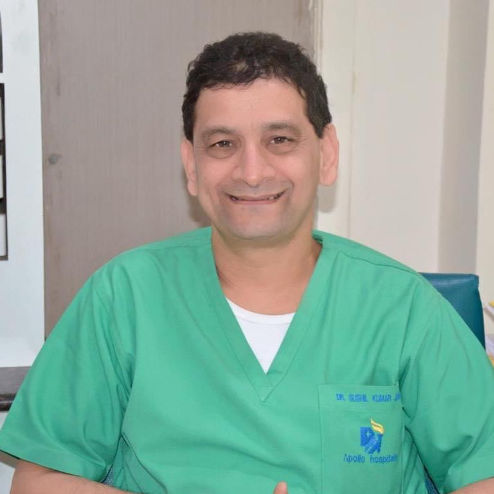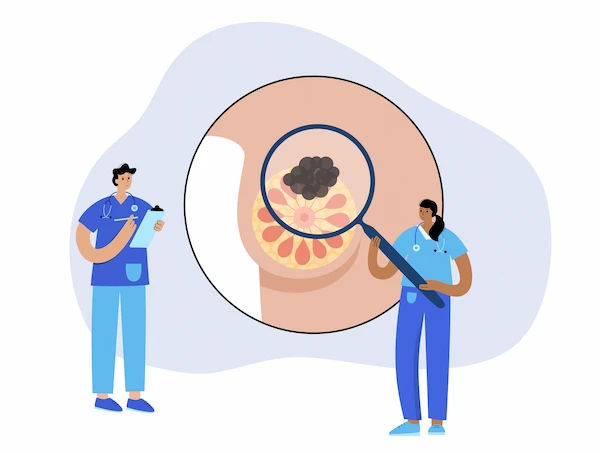Day Care Surgery: A Complete Guide to Safe and Swift Treatment
Discover the complete guide to day care surgery, including benefits, eligibility, procedures, recovery, and safety measures. Learn why same-day surgery is a safe and convenient option.

Written by Dr. Dhankecha Mayank Dineshbhai
Reviewed by Dr. Shaik Abdul Kalam MD (Physician)
Last updated on 13th Jan, 2026

Introduction
For many, the word "surgery" conjures images of long hospital stays, uncomfortable gowns, and a prolonged recovery. But what if you could have a necessary procedure and be back in the comfort of your own home the very same day? This is the reality of day care surgery, a modern approach that is transforming patient experiences across the globe. Also known as ambulatory or outpatient surgery, this model is designed for procedures that do not require an overnight hospital stay. The paradigm is shifting from "why would I?" to "why wouldn't I?" choose this efficient and patient-friendly option.
This guide will demystify the process, explore the numerous benefits of ambulatory surgery, outline what to expect, and help you determine if you are a candidate for this innovative approach to surgical care.
What Exactly is Day Care Surgery?
Day care surgery refers to a surgical, diagnostic, or therapeutic procedure that is performed in a well-equipped medical facility, allowing the patient to be admitted, treated, and discharged on the same calendar day. This model relies on advanced minimally invasive surgical techniques and short-acting anaesthetics that enable a swift and safe recovery, negating the need for a traditional hospital bed overnight.
Day Care Surgery vs. Traditional Inpatient Surgery: Key Differences
The core difference lies in the patient’s journey. Traditional surgery involves pre-operative admission, the procedure itself, and a multi-day post-operative stay for monitoring. Day care surgery compresses this timeline dramatically. The entire process, from registration to discharge, is meticulously planned to be completed within a 12-hour window. This efficiency is made possible by focusing on low-risk procedures for carefully selected healthy patients, ensuring safety remains the utmost priority.
Consult Top Doctors for Personalised Advice
The Multifaceted Benefits of Choosing Day Care Procedures
The advantages of opting for a day care procedure extend far beyond mere convenience, impacting your health, finances, and overall well-being.
Financial and Convenience Advantages
Patients may experience several practical benefits when choosing day care surgery.
Lower Cost: Without the expenses of an overnight room, nursing care, and hospital amenities, the total cost of the procedure is significantly reduced for both patients and healthcare systems.
Minimal Disruption: You can return to your familiar home environment faster, minimising disruption to your daily life, work, and family responsibilities.
Reduced Waiting Times: Dedicated day care surgery centres often have more flexible schedules, potentially leading to shorter waits for necessary procedures.
Health and Psychological Benefits
Alongside financial advantages, there are also positive health-related outcomes.
Lower Infection Risk: Hospitals, despite being sterile environments, host numerous pathogens. Spending less time in a medical facility statistically reduces your exposure to Hospital-Acquired Infections (HAIs).
Enhanced Patient Satisfaction: Most people recover more comfortably and peacefully in their own homes, leading to better mental well-being and a more positive overall healthcare experience.
Promotes Independence: The model encourages patients to be active participants in their recovery process, often leading to better outcomes.
Is Day Care Surgery Right for You? Understanding Candidacy
Not every patient or procedure is suitable for a same-day surgery model. Eligibility is determined through a rigorous screening process.
Medical Criteria for Patient Selection
Ideal candidates are generally those in good health apart from the condition requiring surgery. Doctors use the American Society of Anesthesiologists (ASA) Physical Status Classification, typically selecting patients rated ASA I (healthy) or ASA II (mild systemic disease without functional limitations). Factors like the complexity of the surgery, expected blood loss, and post-operative pain management needs are also critical deciding factors.
The Importance of a Strong Home Support System
Another essential consideration is support at home. You must have a responsible adult to escort you home and stay with you for the first 24 hours after the procedure. Your home must be a safe place for recovery after day surgery, with access to a phone, clean water, and necessary supplies.
A Step-by-Step Walkthrough of Your Day Care Surgery Journey
Knowing what to expect can alleviate anxiety. Here is a typical timeline for your day care surgery experience.
Pre-Operative Phase: Preparation and Checks
Days or weeks before your surgery, you will have a pre-anaesthesia check-up. This involves a review of your medical history, physical examination, and possibly some tests such as blood work or ECG. You will receive specific pre-operative instructions, which usually include fasting for 6-8 hours before the procedure. Apollo24|7 offers convenient home collection for tests like these, making your pre-op preparation smoother.
The Day of Surgery: Arrival, Anaesthesia, and Procedure
On the day of the procedure, you will arrive at the centre at a scheduled time. The nursing staff will prepare you, and you will meet your surgeon and anaesthesiologist. Anaesthesia for outpatient surgery is typically short-acting, with options including local, regional, or general anaesthesia designed for quick recovery. The procedure is then performed with precision.
Recovery and Discharge: What to Expect Before You Leave
Following the surgery, you will be moved to a recovery area where staff will monitor your vital signs as the anaesthetic wears off. Once you are alert, can drink fluids, walk with assistance, and your pain is manageable with oral medication, you will be cleared for discharge. You will receive detailed post-operative care instructions covering wound care, medication, activity restrictions, and dietary advice.
Common Types of Day Care Surgery Procedures
The list of procedures now performed as day care procedures is vast and growing, thanks to technological advancements like laparoscopy and endoscopy.
Ophthalmology: Cataract surgery, LASIK eye surgery.
General Surgery: Inguinal hernia repair, laparoscopic gallbladder removal, haemorrhoidectomy, breast biopsies.
Orthopaedics: Knee arthroscopy, shoulder arthroscopy, carpal tunnel release.
ENT: Tonsillectomy in older children and adults, sinus surgery, tympanostomy (ear tubes).
Gynaecology: Dilation and curettage, hysteroscopy, laparoscopic sterilisation.
Urology: Vasectomy, cystoscopy, circumcision.
Prioritising Safety: How Day Care Centres Ensure Your Well-being
Safety is the non-negotiable foundation of day care surgery. Accredited centres are equipped with the same life-saving equipment and protocols as hospital operating rooms.
Advanced Technology and Protocols
These centres invest in state-of-the-art monitoring devices, defibrillators, and advanced anaesthesia machines. Strict protocols for sterilisation, infection control, and emergency transfer to a full-service hospital if needed are mandatory.
The Role of the Multidisciplinary Team
Your care is managed by a dedicated team including a skilled surgeon, an anaesthesiologist specialising in outpatient surgery, trained nurses, and technicians, all focused on providing safe and efficient care.
Preparing for a Successful Recovery at Home
Your responsibility begins at discharge. Following instructions meticulously is key to a smooth recovery.
Essential Post-Operative Care Instructions
Here are some of the most important aspects of recovery at home.
Rest: Avoid complete bed rest but move gently to prevent blood clots.
Hydration and Diet: Start with clear fluids and light meals.
Wound Care: Keep the surgical site clean and dry. Watch for signs of infection.
Medication: Take prescribed pain relievers and antibiotics on schedule.
Avoid: Driving, operating machinery, making important decisions, or drinking alcohol for at least 24 hours.
Red Flags: When to Call Your Doctor
There are certain warning signs you should never ignore.
If your condition does not improve or you experience severe pain, fever, chills, redness or swelling at the incision site, chest pain, or difficulty breathing, consult a doctor online with Apollo24|7 for further evaluation immediately. Do not wait.
Conclusion
The landscape of surgical care is evolving, and day care surgery is at its forefront. It represents a patient-centric model that prioritises efficiency, comfort, and safety without compromising on the quality of medical care. By choosing this option where appropriate, you are not just opting for a quicker process; you are embracing a modern approach that minimises disruption to your life and maximises your well-being. If you have been advised to undergo a surgical procedure, remember to ask your doctor the empowering question: "Is day care surgery a suitable option for me?" Being an informed and proactive participant in your healthcare decisions is the first step toward a positive and successful treatment outcome.
Consult Top Doctors for Personalised Advice
Consult Top Doctors for Personalised Advice

Dr Anubhav Chittari
General Surgeon
3 Years • MBBS, M.S GENERAL SURGERY
Bengaluru
PRESTIGE SHANTHINIKETAN - SOCIETY CLINIC, Bengaluru

Dr Venu Kumar K N
Vascular Surgeon
10 Years • MBBS, MS (Surg), DNB (Surg), M.Ch (Vas Surg), DrNB (Vas Surg)
Bengaluru
Apollo Clinic, JP nagar, Bengaluru

Dr. Rekha Jaiswal
General Surgeon
22 Years • MBBS, MS (Gen. Surg.), M.MAS (Master in Minimal Access Surgery), FIAGES, FMAS, FALS (Bariatric), DMAS & Robotic ( da Vinci), USA Trained- Bariatric & Robotic Surgery
Delhi
Apollo Hospitals Indraprastha, Delhi
(200+ Patients)

Dr. Sushil Kumar Jain
General Surgeon
31 Years • MBBS, MS (Surg.), HPBS, Cert CRS (England)
Delhi
Apollo Hospitals Indraprastha, Delhi
(75+ Patients)

Dr. Jameel Akhter
General and Laparoscopic Surgeon
21 Years • MBBS, MS (General Surgery), FIAGES, FLS (Germany), FICS, FAIS (General & Laparoscopic Surgeon) FALS ( Hernia )
Chennai
Apollo Hospitals Greams Road, Chennai
(400+ Patients)
More articles from General Medical Consultation
Frequently Asked Questions
Q1. Is day care surgery as safe as traditional surgery?
Yes, for the carefully selected procedures and patients, it is equally safe. Accredited ambulatory surgery centres adhere to rigorous safety standards and are equipped to handle emergencies, ensuring patient safety is never compromised.
Q2. Will I be in pain after I go home?
Some pain or discomfort is normal after any surgical procedure. However, your doctor will prescribe appropriate oral pain medications to manage this effectively. The pain is typically manageable and diminishes significantly within the first 24-48 hours of recovery.
Q3. How long until I can return to work after a day care procedure?
This depends on the type of minimally invasive surgery you had and the physical demands of your job. For sedentary jobs, it could be as soon as 1-2 days. For more physical work, it might take a few weeks. Your surgeon will give you a specific timeline.
Q4. What happens if there is a complication after I’m discharged?
All reputable day care surgery centres have a clear protocol for post-discharge complications. You will be provided with 24/7 contact information for a nurse or doctor. In case of an emergency, you should seek immediate care at the nearest emergency room, and the surgery centre will coordinate with that hospital.
Q5. Are all types of anaesthesia available for day care procedures?
Yes, all forms, local, regional (such as spinal blocks) and general anaesthesia, are used. The key difference is that anaesthesiologists use shorter-acting drugs and specific techniques designed to wear off quickly with minimal side effects, enabling a safe and timely discharge.
.webp)



